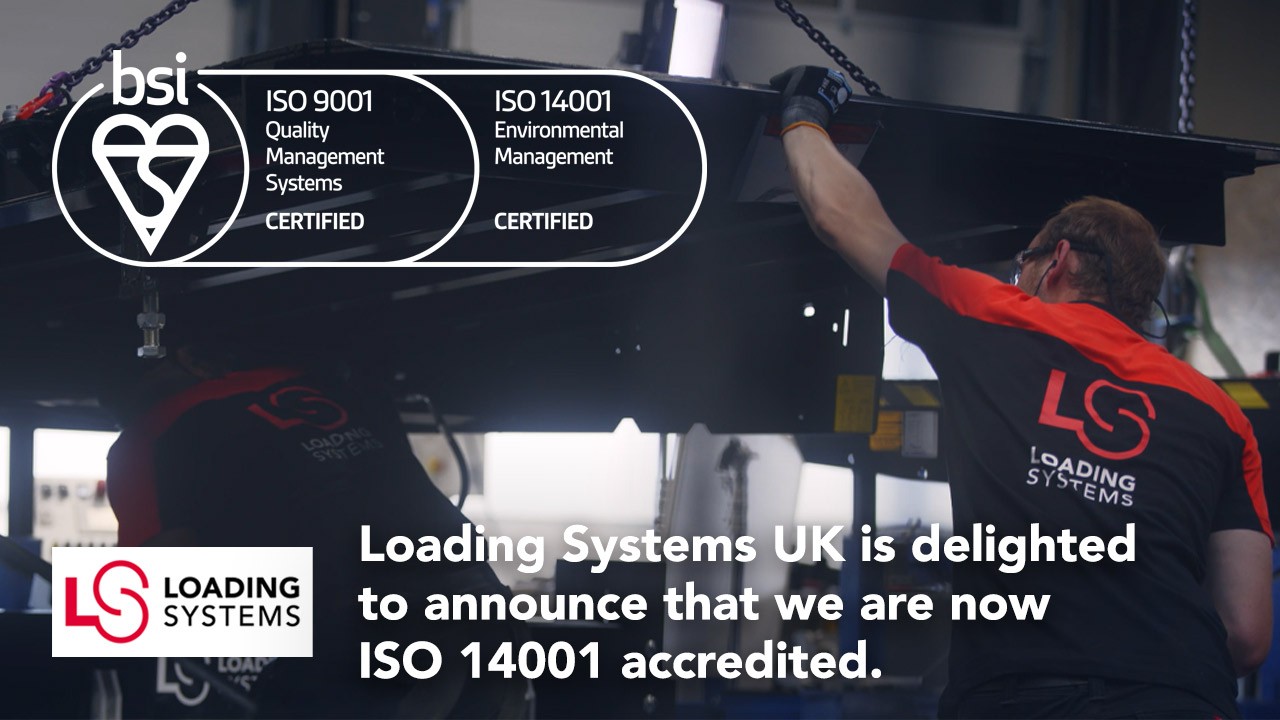
It has taken many months of hard work, however, achieving the accreditation now allows us to use the standard to demonstrate our commitment to environmental sustainability to all of our partners.
By holding the ISO 14001 accreditation, we're showing our commitment to reducing waste and energy use and improving efficiency and environmental performance. This not only benefits our company but also contributes positively to our community and the environment.
As with the other standards we've achieved, we'll now be undergoing 6 monthly ISO 14001 audits to make sure we're following up on our commitments and continuing to improve.....which of course we will be doing!
If you would like to understand more about what this accreditation means please read on…
Understanding ISO 14001 Accreditation: A Key to Environmental Responsibility
In today's world, environmental concerns have become more critical than ever before. With climate change, pollution, and resource depletion threatening the delicate balance of our planet, individuals and organisations alike are increasingly recognising the importance of environmental responsibility. In this context, certifications such as ISO 14001 play a vital role in guiding businesses towards sustainable practices and demonstrating their commitment to the environment.
What is ISO 14001?
ISO 14001 is an internationally recognised standard for environmental management systems (EMS). Developed by the International Organisation for Standardisation (ISO), this standard provides a framework that organisations can follow to establish and improve their environmental performance. It outlines requirements for implementing an effective EMS, enabling companies to identify, prioritise, and manage their environmental risks and opportunities systematically.
Why Pursue ISO 14001 Accreditation?
1. Enhanced Environmental Performance:
Implementing ISO 14001 encourages organisations to adopt proactive measures to minimise their environmental impact. By identifying areas for improvement and setting targets for reducing waste, conserving resources, and mitigating pollution, companies can significantly enhance their environmental performance.
2. Legal Compliance:
Compliance with environmental regulations is a fundamental aspect of ISO 14001 accreditation. By adhering to applicable laws and regulations, organisations can avoid costly fines and legal disputes while demonstrating their commitment to operating within the bounds of environmental legislation.
3. Cost Savings:
Efficient resource management and waste reduction initiatives often result in significant cost savings for accredited organisations. By optimising processes, conserving energy and water, and minimising waste generation, companies can streamline their operations and reduce expenses associated with raw materials, utilities, and waste disposal.
4. Competitive Advantage:
ISO 14001 accreditation provides a competitive edge in the marketplace. Many customers, investors, and stakeholders prefer to engage with environmentally responsible organisations. By showcasing their commitment to sustainability through ISO 14001 certification, companies can attract environmentally conscious consumers and investors, thereby enhancing their reputation and marketability.
5. Stakeholder Confidence:
ISO 14001 accreditation fosters trust and confidence among stakeholders, including customers, employees, regulators, and communities. By demonstrating a proactive approach to environmental management and accountability, organisations can strengthen relationships with stakeholders and build a positive reputation that enhances their brand value.
The Accreditation Process:
Achieving ISO 14001 accreditation involves several key steps:
1. Gap Analysis:
Assess current environmental practices and policies against ISO 14001 requirements to identify areas that require improvement or modification.
2. Development of EMS:
Establish an environmental management system tailored to the organisation's needs, incorporating policies, objectives, procedures, and processes for managing environmental aspects and impacts.
3. Implementation:
Roll out the EMS across the organisation, ensuring that all relevant personnel are trained and equipped to fulfil their roles and responsibilities effectively.
4. Internal Audit:
Conduct internal audits to evaluate the effectiveness of the EMS and identify any non-conformities or areas for improvement.
5. Management Review:
Review the EMS regularly at the management level to assess its performance, identify opportunities for improvement, and ensure alignment with organisational goals and objectives.
6. Certification Audit:
Engage an accredited certification body to conduct an independent audit of the EMS and verify compliance with ISO 14001 requirements.
7. Continuous Improvement:
Commit to ongoing monitoring, measurement, and evaluation of environmental performance, continually seeking opportunities to enhance sustainability and reduce environmental impact.
In a nutshell ISO 14001 accreditation serves as a testament to our commitment to environmental responsibility, providing a structured framework for managing environmental risks and opportunities effectively.
By pursuing ISO 14001 certification, we are improving our environmental performance, achieving regulatory compliance, realising cost savings, and enhancing stakeholder confidence.
In an era where sustainability is paramount, ISO 14001 accreditation emerges as a cornerstone of responsible business practices, paving the way towards a greener, more sustainable future, because #WeTakeCare.
If you would like information on any of our products or services, please contact us now on 0800 160 1965, email us on wetakecare@loading-systems.co.uk or use the Contact Request form below.
